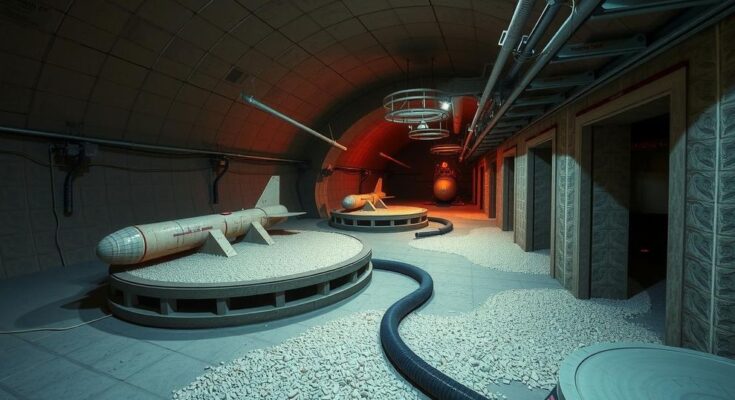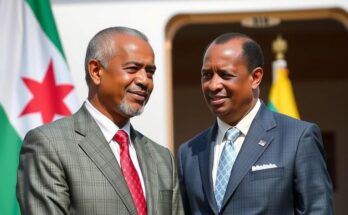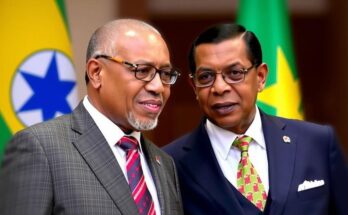Iran’s IRGC revealed an underground missile base allegedly used for attacks on Israeli military targets. Commander Salami emphasized advancements in missile capabilities and future developments in military infrastructure. The facility reportedly houses strategic liquid-fueled missiles and can be activated swiftly, indicating Iran’s preparedness amid continued regional tensions with Israel.
On January 10, Iran’s Islamic Revolutionary Guard Corps (IRGC) showcased a newly revealed underground missile facility, which they claim was utilized in recent strikes targeting Israeli military assets. This unveiling, reported by Mehr state news agency, follows growing domestic pressures faced by hardliners within Iran, particularly in light of perceived failures in Syria. The facility, described as a “missile city,” was presented by IRGC Commander Major General Hossein Salami, who indicated that only a fraction of its capabilities was disclosed to the media.
The facility reportedly accommodates a range of strategic missiles, including advanced liquid-fueled varieties such as the Emad, Qadr, and Qiam systems. Highlighting operational capacities, the IRGC conducted operations titled “True Promise 1 and 2,” which the group claims were directed against Israel. General Salami emphasized Iran’s advancing missile capabilities, stating, “The enemy thought our production capacity had been interrupted, but our missile power growth rate is up to date.”
He further asserted that future developments will introduce new underground missile and drone complexes, promising significant growth and diversity in Iran’s military arsenal. Amid ongoing hostilities, both Iran and Israel have exhibited a degree of restraint to avoid escalation following a series of military exchanges. The IRGC also remarked that the equipped facility can be activated with remarkable swiftness, such as a dormant volcano, and stated that recent missile strikes had effectively breached various Israeli air defense layers, impacting operational readiness at Nevatim airbase.
Established post-1979 Islamic Revolution, the IRGC functions as a crucial arm of Iran’s military structure, tasked with safeguarding the nation’s Islamic regime. It operates independently of the regular army, reporting directly to Iran’s Supreme Leader, and possesses substantial military, intelligence, and economic influence. The IRGC oversees Iran’s missile pursuits and nuclear initiatives, extending its control through the elite Quds Force, which shapes regional military and political strategies.
The Islamic Revolutionary Guard Corps (IRGC) serves as a vital component of Iran’s military framework, originally formed to protect the Islamic system from internal threats following the 1979 revolution. This elite segment of the armed forces operates separately from the regular military and carries out operations that significantly influence both domestic stability and regional policies. The IRGC’s oversight of missile and nuclear programs underlines its role in projecting Iran’s military might and reinforcing national defense capabilities within a context of ongoing geopolitical tensions, especially with Israel.
In summary, the recent revelation of Iran’s underground missile facility by the IRGC marks a strategic display of military capability aimed at both deterring external threats and rallying domestic support. The showcased advances in missile technology and the operational readiness of the facility, which can be deployed rapidly, underscore Iran’s ongoing commitment to enhancing its military prowess amid escalating regional tensions. The IRGC’s dual role as protector of the Islamic regime and manager of complex military operations will continue to shape the dynamics of security in the Middle East.
Original Source: www.intellinews.com




